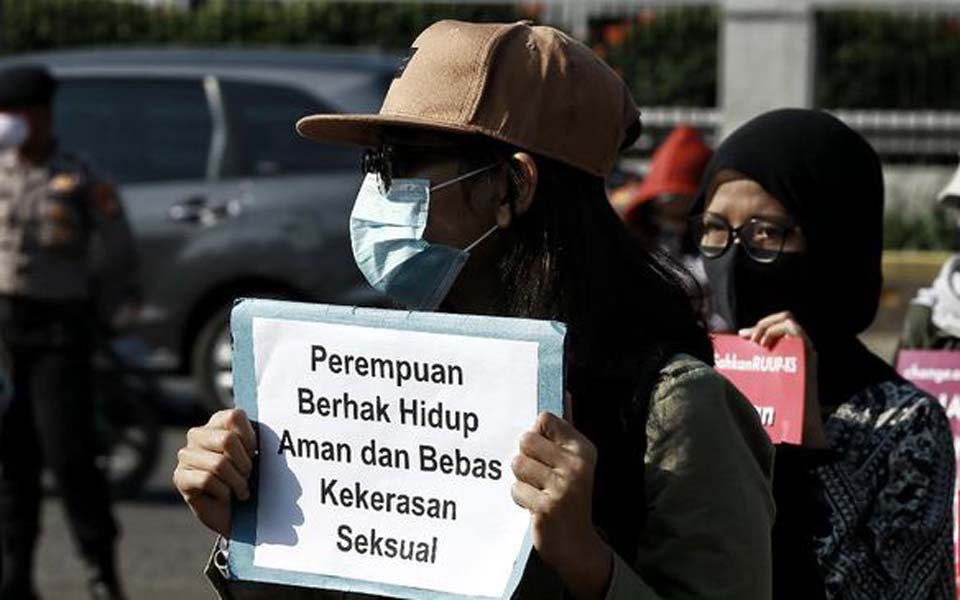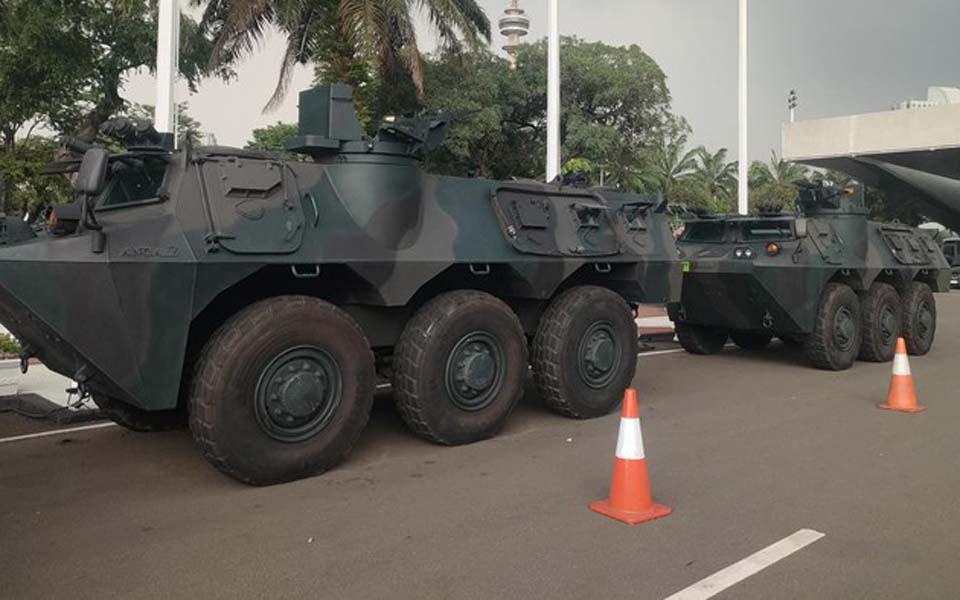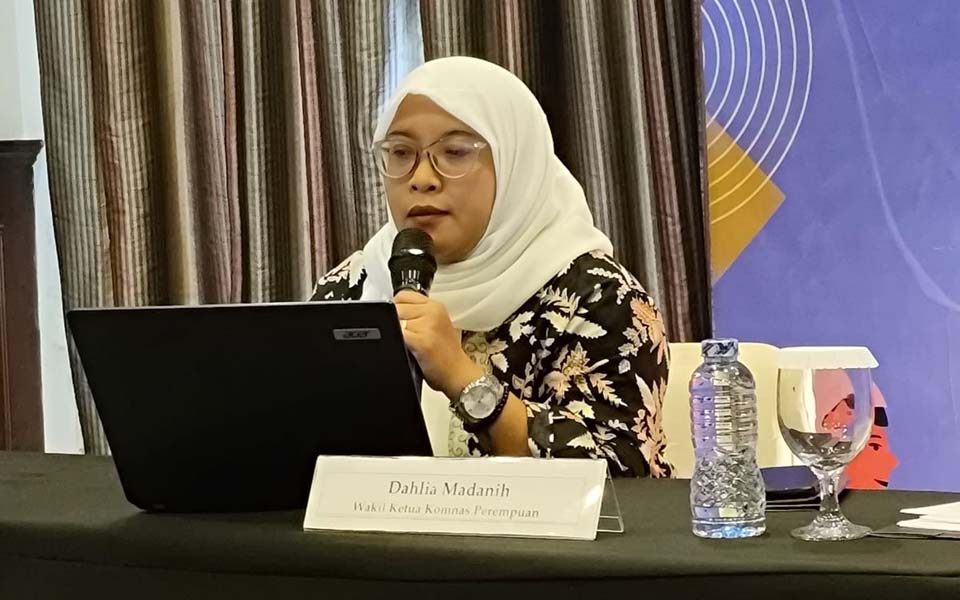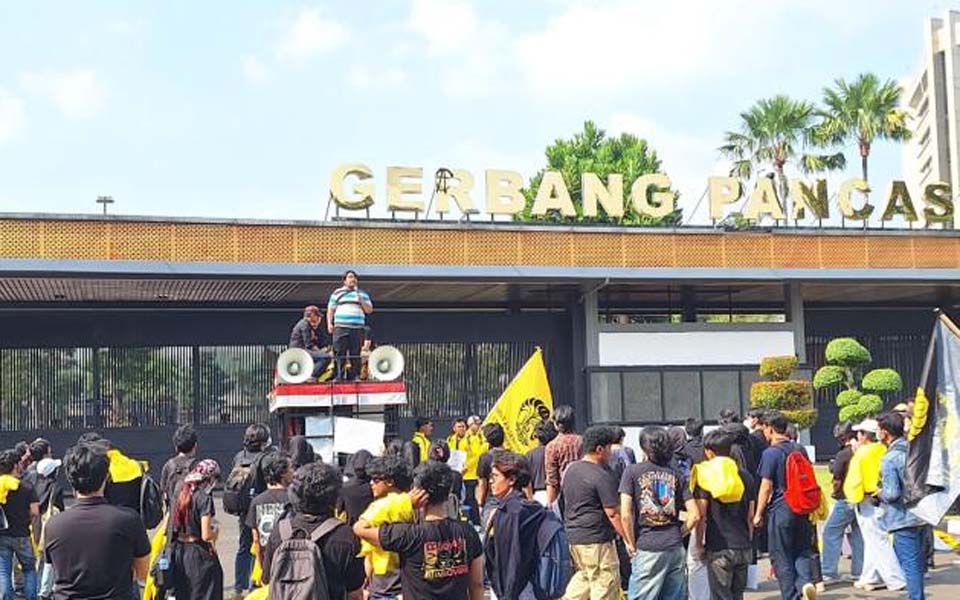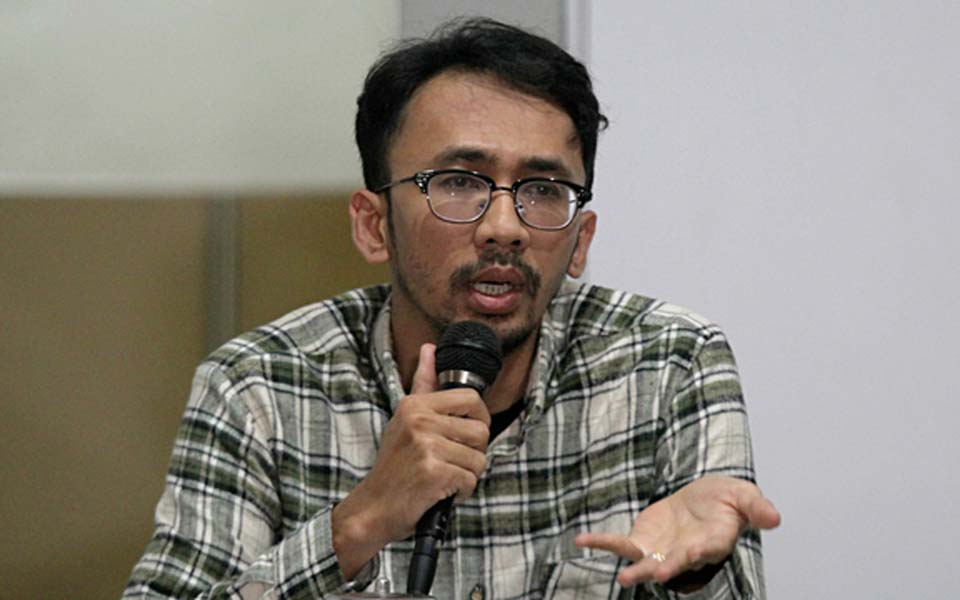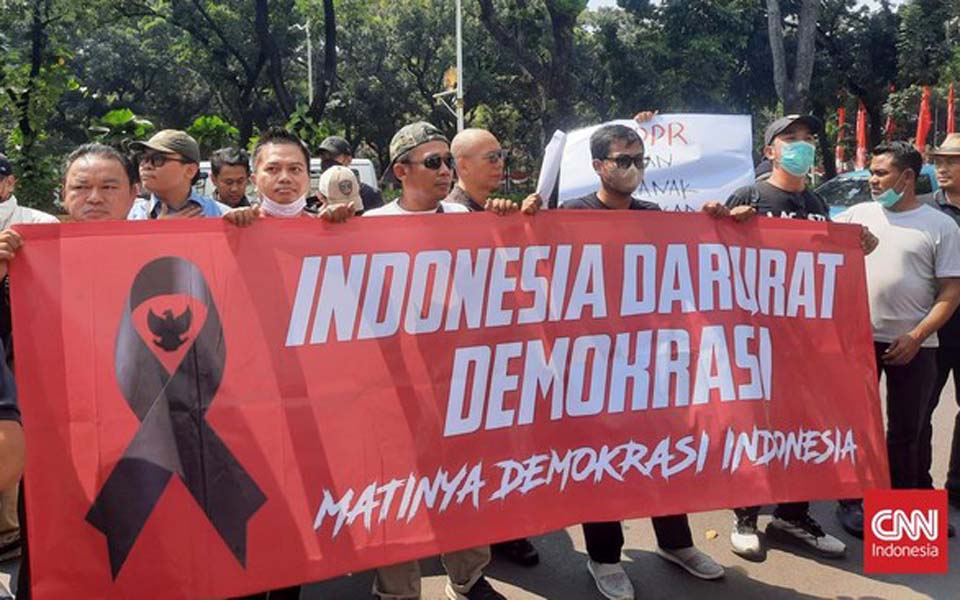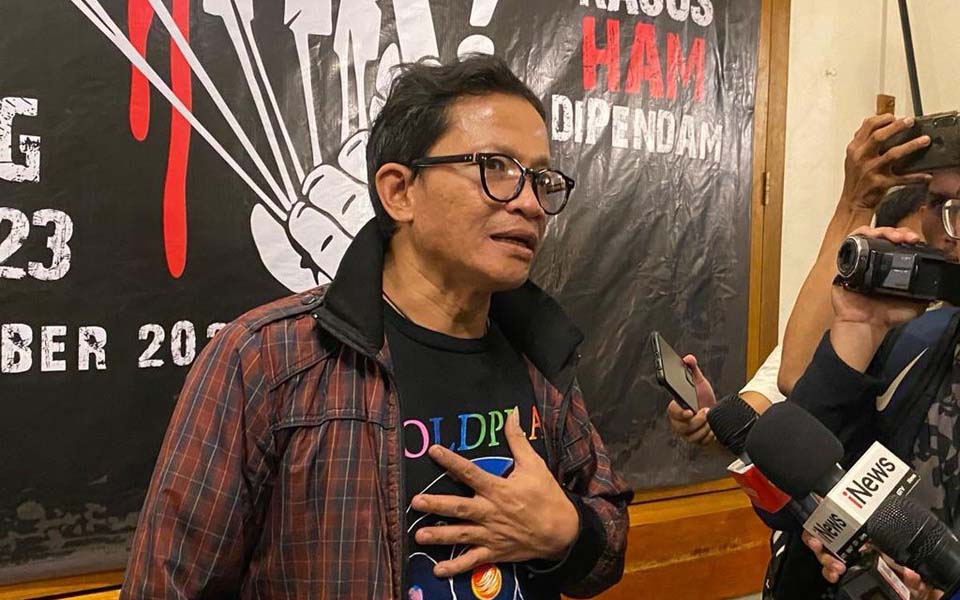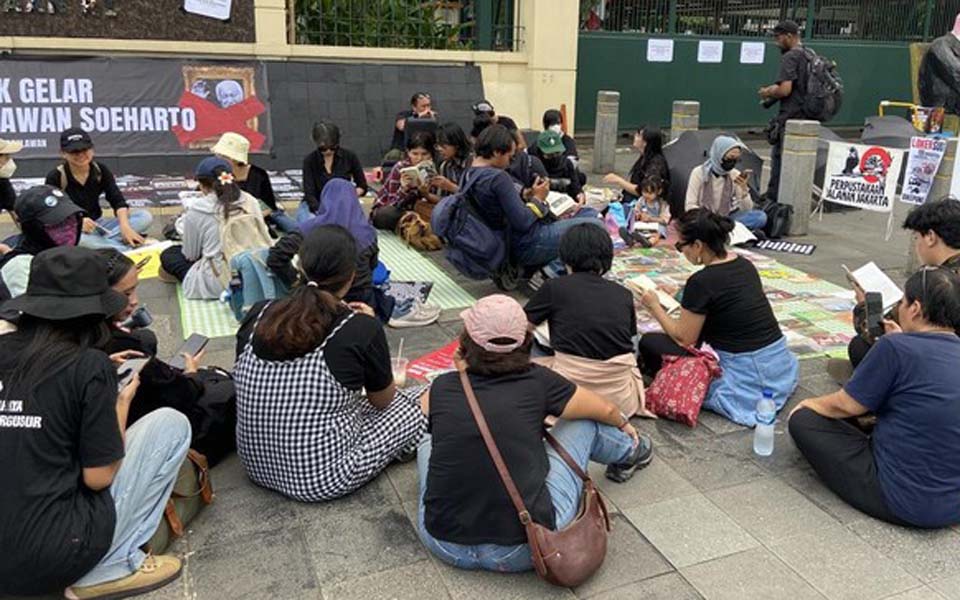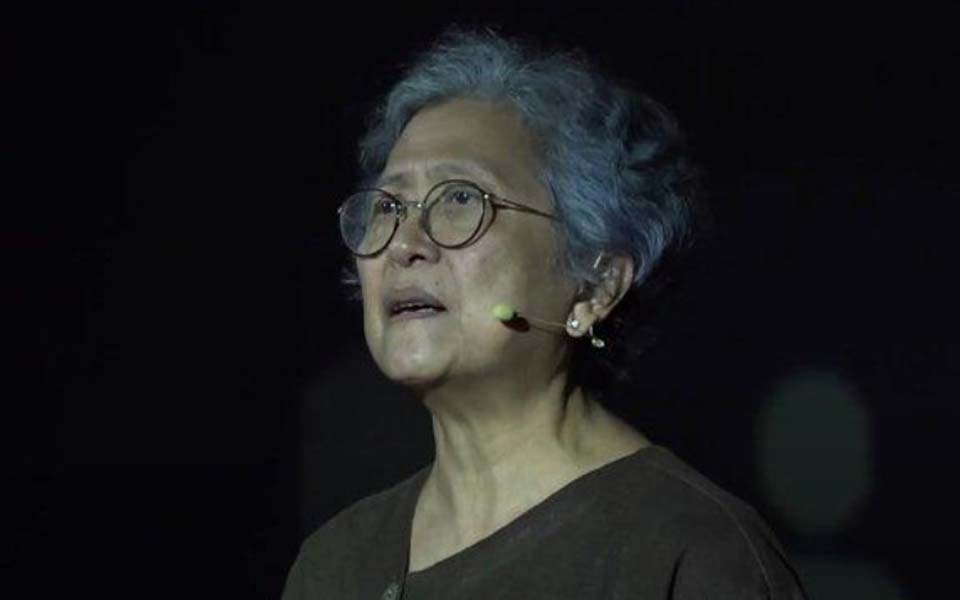Jakarta – The Civil Society Coalition Against Sexual Violence (KOMPAKS) says that as many as 85 articles have been removed in the process of changing the title of the Draft Law on the Eradication of Sexual Violence (RUU PKS) to the Draft Law on Sexual Violence Crimes (RUU TPKS).
Based on KOMPAKS' findings, as of September 2020 the RUU PKS had a total of 128 articles. Then in the RUU TPKS as of August 30, this has been drastically cut down to 43 articles.
KOMPASKS representative Naila revealed that the most visible changes can be seen in the forms of sexual violence covered by the bill.
According to Naila, the earlier version of the RUU PKS stipulated nine types of sexual violence: sexual harassment, forced marriage, forced contraception, forced abortion, rape, sexual exploitation, forced prostitution, sexual slavery and sexual torture.
Meanwhile, she continued, the RUU TPKS or new draft only stipulates four types of sexual violence: sexual harassment, forced use of contraceptives, forced sexual relations and sexual exploitation.
Naila said that the removal of these key elements from the RUU PKS is a step back in efforts to protect the victims of sexual violence.
"This deliberation process is good progress, but the change in the title and the removal of key elements from the RUU PKS is a step back for the fulfillment and protection of the rights of victims of sexual violence. As a civil society, we need to reinforce our solidarity with the victims of sexual violence by urging the DPR's Baleg [House of Representatives Legislative Body] to adjust the materials in the RUU PKS with the victims' need", said Naila in a press release received by CNN Indonesia on Friday September 3.
Key stipulations and principles removed
Furthermore, Naila explained that several substantive stipulations and principles have disappeared in the process of changing the title of the RUU PKS to the RUU TPKS.
First, they found that this was related to the right to guarantees, rehabilitation and protection of victims. In the RUU TPKS, said Naila, the stipulations on the rights of victims are only cited in the general stipulations, namely under Article 1 Number 12.
"There are no follow up stipulations related to the fulfillment of the rights of victims to addressing [the crime], protection and rehabilitation. This could abolish guarantees of fulfilling the victims' rights during a criminal trial process", she said.
Second, are the stipulations related to acts of rape, forced marriage, forced prostitution, forced abortion, sexual torture and sexual slavery.
Naila said that the lack of an acknowledgement and stipulations on the different kinds of sexual violence is an invalidation of the experiences of victims of sexual violence and a neglect of the rights of victims to seek justice and rehabilitation.
Third, continued Naila, the refining of the definition of rape as forced sexual relations. Naila said that the use of terminology other than rape in the context of refining the language will impact on the understanding of the incident, delay the fulfillment of victims' rights and perpetuate the practice of discrimination and injustice for victims in the judicial process and society.
Forth, she revealed that there are no stipulations on online sexual violence. Naila said that online sexual violence is a type of sexual violence which has emerged quite recently in concert with technological developments.
According to Naila, the absense of stipulations on online sexual violence in the RUU TPKS is move which lacks strategy and fails to consider the reality of online sexual violence in society.
Finally, said Naila, the absense of stipulations on dealing with victims of sexual violence with disabilities. She said that victims of sexual violence with disabilities have special and different needs depending on the type of disability they have.
These needs are not just limited to those of accessibility to information such as through sign language interpreters during the legal process and assistance or psychological counseling, which must be brought into line with the needs of victims with disabilities.
"Aside from accessibly, the protection of the validity of evidence, a complain offence system and a special point on the kinds of disabilities are not cited. Yet individual kinds of disabilities have different needs and approaches to dealing with them from reporting, the legal process and rehabilitation", said Naila.
Legal Aid Foundation concerns
Meanwhile the Jakarta Legal Aid Foundation (LBH) made 16 important notes on the RUU TPKS.
First, in relation to the removal of the basis and aim in forming the law, which has the potential to make the purpose of eradicating sexual violence unclear.
Then, the removal of the crimes of sexual slavery, forced marriage, the stipulations on force abortion, forced prostitution and changes in the nomenclature of the crime of rape becoming forces sexual relations which reduces the meaning of the act of rape itself.
Next, the lack of gender based online sexual violence crimes, equating sexual violence against adults and children, the lack of criminal stipulations about the actions of perpetrators, the lack of special protection for victims with disabilities and the removal of stipulations which oblige the government to fulfill the rights of victims, which is concrete evidence that the state is fleeing from its responsibility, as well as the lack of stipulations on the rights of victims, witnesses and experts, along with the lack of an obligation by the Integrated Service Centre (PPT) to protect and fulfill victims' rights.
Then the purpose of efforts to prevent sexual violence is not regulated comprehensively in the draft so preventative actions which should be of serious concern have been ignored. The LBH also highlighted the lack of prohibitions against law enforcement officials from committing acts of discrimination in the law enforcement process in case of sexual violence, along with the removal of a role for paralegals to assist victims of sexual violence.
LBH Jakarta believes that the removal and absense of these stipulations could have the consequence of making the protection of victims of sexual violence being far from providing a sense of justice and legal certainly.
"These issues and at the same time asking lawmakers, in which direction to you want to take the protection of victims and law enforcement against perpetrators of crimes of sexual violence", wrote the Jakarta LBH in a press release.
Separately, the deputy chairperson of the DPR's Baleg, Achmad Baidowi, revealed that they have yet to hold a discussion on the RUU TPKS. According to Baidowi, the changes in the title from RUU PKS to RUU TPKS are still subject to discussion and not yet reflected in the drafting of the regulation.
"There's no [draft] yet. It's still being discussed, it's yet to go to the panja [working committee]", said Awiek, as he is called by his friends, when sought for confirmation. (mts/kid)
[Translated by James Balowski. The original title of the article was "KOMPAKS: RUU PKS Ganti Nama Jadi TPKS, 85 Pasal Hilang".]





